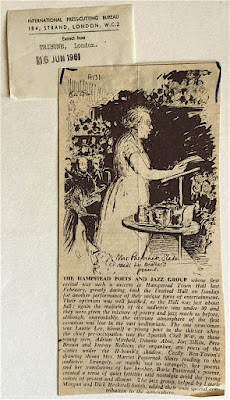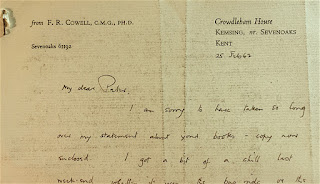 Found -- a slim volume of poetry from 1927 Lodequest: A Ballad of the Grail (Ancient House, Ipswich 1927) by Herbert Hudson. His wife produced the illustrated cover and also contributed one of the poems. She was Joan Abbay an East Anglian artist, and this is the only example of her work currently online, although it is possible some of her paintings are occasionally sold at auction.
Found -- a slim volume of poetry from 1927 Lodequest: A Ballad of the Grail (Ancient House, Ipswich 1927) by Herbert Hudson. His wife produced the illustrated cover and also contributed one of the poems. She was Joan Abbay an East Anglian artist, and this is the only example of her work currently online, although it is possible some of her paintings are occasionally sold at auction.The introduction to the book places the Grail legend in context, quoting from Jessie L Weston's The Quest of the Holy Grail (1913)- (also an influence on a somewhat better known poem*):
Every student of mediaeval literature will bear witness that there were strange current stirring in those days, that more was believed, that more was known than the official guardians of faith and morals cared to admit; that much, very much of this undercurrent of yearning and investigation was concerned with the search for the source of life;





















